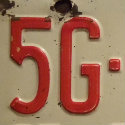
Also in today's EMEA regional roundup: CityFibre completes FibreNation acquisition; Ericsson provides reassurance; operators do their bit in a time of crisis.
It didn't quite reach Italian proportions, but Hungary's 5G spectrum auction has raised nearly double what was originally anticipated. As Reuters reports, Hungarian telecommunications regulator NMHH has hoovered up 128.5 billion forints ($399.07 million) in the sale, which provided Vodafone, Magyar Telekom and Telenor blocks of 5G frequencies. As the price suggests, demand far outstripped supply.
UK altnet CityFibre has completed its acquisition of FibreNation from TalkTalk Group following shareholder approval. The deal, says CityFibre, boosts its £4 billion ($4.9 million) rollout program to "up to" 8 million premises, creating 7,000 new construction jobs in the process. FibreNation began life in 2018, four years after a joint venture between TalkTalk, Sky and CityFibre was launched to deploy full-fiber infrastructure and services across the northern English city of York.
Ericsson has provided reassurance that the coronavirus will have limited or no impact on its supply chain in the first quarter, adding that for Q2 "our assessment remains that we can cover currently forecasted demands, taking into account known implications and expected outcome from mitigations made following the outbreak."
O2 UK, like other mobile operators, has experienced a huge surge in voice traffic since the beginning of the coronavirus crisis – 57% more at the busiest point of the day, to be precise. The operator says it has doubled the capacity of its voice network over the last two weeks to accommodate all this extra talking. For O2, voice-traffic peak time has shifted from 6 p.m. to around 11 a.m. and 12 p.m. in line with new working patterns.
Reuters reports that Austria is postponing its 5G frequency auction – which would have covered the 700MHz, 1,500MHz and 2,100MHz bands – as a result of the COVID-19 crisis.
VEON, the operator headquartered in Amsterdam but focused on Russia and Asian markets, is doing its bit for the virus crisis. Among several announced measures, it is: offering free or zero-rated access to emergency healthcare, foreign affairs hotlines and websites; introducing more flexible payment terms for affected customers (e.g. in Armenia all bill payments have been deferred for a month); and working with health authorities to raise awareness of the virus by sending out millions of SMS alerts in Pakistan, Ukraine, Kazakhstan and Bangladesh.
Vodafone UK, meanwhile, is offering 30 days of free unlimited mobile data for 500,000 postpaid customers. Impressively, the operator says it will be "proactively upgrading" those customers who are flagged as vulnerable in its systems to the data offer. Others can access the offer through Vodafone's app-based rewards scheme.
A1 Telekom Austria Group says it has successfully tested a tool that is intended to combat the threat posed by so-called Wangiri fraud ping calls, which trick their victim into calling back a missed call on an extortionate premium-rate international line. Just in the first two days of the trial, says the company, 98.8% of all ping calls from Africa to Austria were clearly identified as fraud. Also fighting fraud is A1 startup company Whalebone, which takes a DNS-based approach to securing data traffic against botnets, ransomware, spyware of phishing, and has launched a product called A1 Net Protect.
— Paul Rainford, Assistant Editor, Europe, Light Reading
Read more about:
EuropeAbout the Author(s)
You May Also Like












